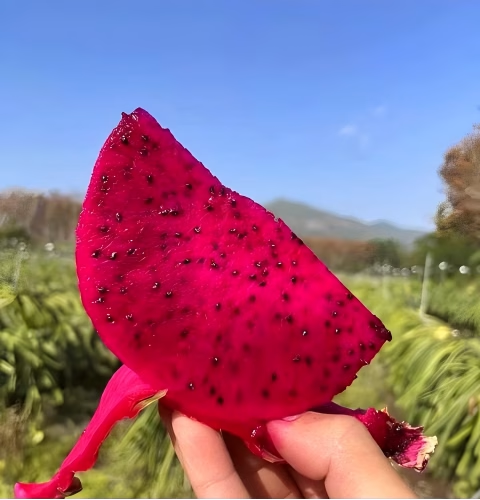Can I still eat a sprouted pitaya? Is it poisonous? Common ingredients like potatoes can produce toxins and should not be eaten after sprouting, making it more important to be cautious when storing purchased ingredients. How can I properly store pitaya to keep it in optimal condition?
Can I still eat a sprouted pitaya?
Pitaya can sprout in hot weather, poor storage, or if it’s been left uneaten for too long. When pitaya sprouts, a milky white bud appears at the seed site. Can I still eat a sprouted pitaya? Is it poisonous? Sprouting pitaya develops an ovule stalk, which is part of the fruit. Sprouting pitaya is not poisonous and can be eaten safely.
If a pitaya sprouts, simply remove the sprouted area and it can still be eaten. However, if the pitaya sprouts, it should be considered whether improper storage is necessary. Pitaya is susceptible to sprouting due to hot weather and improper storage.
During summer, when pitaya is in season, the weather and ambient temperatures are both high and muggy, making it more likely for pitaya to sprout.
How should pitaya be stored? Room temperature or refrigerated?
To properly store pitaya, it should generally be stored at room temperature in a cool, well-ventilated environment for about a week. If the environment or temperature is high, or if it will not be consumed within a short period of time, avoid washing the skin. Wrapping the pitaya in newspaper or plastic bags and refrigerating it will extend its shelf life.
Alternatively, simply peeling the pitaya, cutting it into pieces, and freezing it in a plastic bag will extend its shelf life. It can also be used in various dishes.
Tips for Choosing Pitaya
Although pitaya sprouts are not toxins, overripe or sprouting can affect the taste. Therefore, it’s important to be careful when purchasing pitaya. If you’re considering immediate consumption and flavor, choose pitaya that appears fresh and substantial, avoiding overripe or rotten fruit. The skin should be rosy but not rotten, and the scales should be natural, not rotten or dry.
Even if you’ve stored your dragon fruit at room temperature after purchase, you should still monitor its condition and try to consume it within three days to maximize its freshness.


Leave a Reply